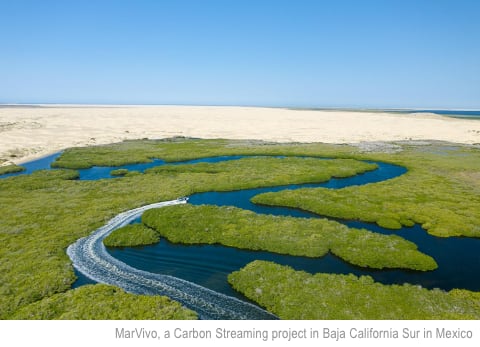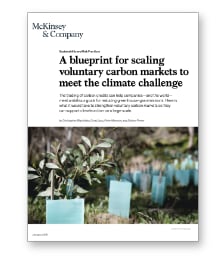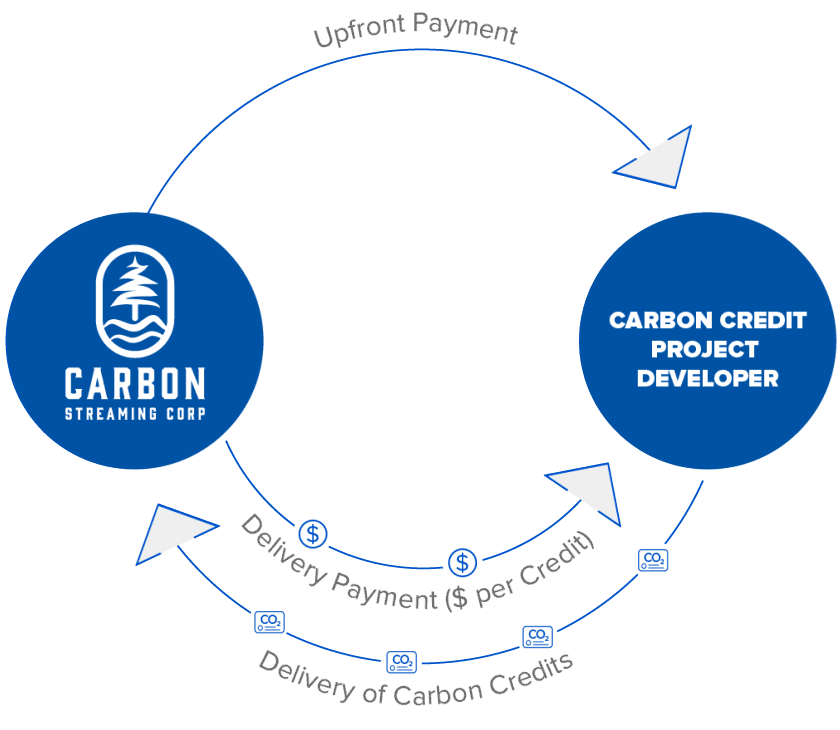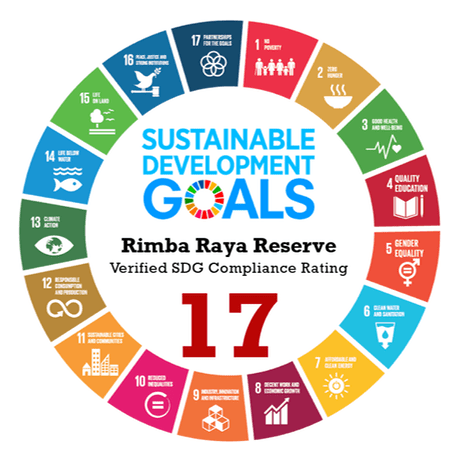![]()

Decarbonization is in global focus. As societies race to meet the goals set by the Paris Agreement, companies are under pressure to reduce emissions from governments, NGOs, consumers, regulators, shareholders and employees. A failure to decarbonize could result in severe regulatory, financial, and reputational consequences, particularly in developed economies. Companies like Unilever, Coca-Cola, and Walmart are increasingly signing up to do their part.
While net-zero emissions may be the ultimate goal, most companies cannot achieve this overnight, particularly those in energy-intensive industries. This is where purchasing carbon credits (also known as carbon offsets) can come into consideration as part of the solution.
Each carbon credit represents one tonne of carbon dioxide or the carbon dioxide equivalent of another greenhouse gas (GHG) that’s either removed from or prevented from being emitted into the atmosphere. By offsetting their carbon footprint this way, companies can address shareholders and consumers who demand excellent green performance and responsible corporate citizenship. While not a cure-all, offsets act as an important tool in building a net-zero future.
There are two types of carbon markets: compliance markets and voluntary markets.
Compliance markets are government-created schemes for entities in certain industries to achieve compliance with national, subnational or regional emissions standards. These can also be known as cap-and-trade schemes or emissions trading systems (ETS). Compliance markets play a critical role in global emissions reductions as they require companies to offset their emissions with carbon credits. However, more and more organizations are also seeking opportunities to demonstrate their commitment to carbon neutrality.
Voluntary markets function outside of compliance markets and provide companies not subject to an ETS the opportunity to purchase carbon credits to offset their carbon footprint.
In a 2021 report by McKinsey & Company on the voluntary carbon markets, it is estimated that demand could “increase by a factor of 15 or more by 2030 and by a factor of up to 100 by 2050. Overall, the market for carbon credits could be worth upward of $50 billion in 2030.”
Carbon Streaming is bringing the stream financing model to carbon offset projects and investing in projects that may otherwise go undeveloped. It is leveraging the capital markets to fight climate change and is doing so by acting as a long-term strategic partner to project developers and carbon credit buyers alike, to affect positive transformation for climate and communities.
According to Carbon Streaming, it enters into carbon credit streams with project developers or owners, whereby it makes an upfront payment in return for the right to receive all or a portion of future carbon credits generated by a project. An additional payment may be paid per carbon credit when the carbon credits are delivered to or sold by Carbon Streaming.
According to Carbon Streaming, the benefit of the streaming arrangement is that it provides Carbon Streaming with exposure to carbon credits and potential price appreciation without taking on the operating responsibility and risk of managing a carbon offset project. The upfront payment can help the project developers or owners accelerate their carbon reduction or removal initiatives that may have taken longer to come into being.
Carbon Streaming intends to build a portfolio of high-quality carbon credits generated in a number of different geographical areas and from different project types. Carbon Streaming states that each credit will undergo rigorous third party validation in accordance to a recognized international standard, such as Verra’s Verified Carbon Standard (VCS), the Gold Standard, among others. Carbon Streaming aims to be a trusted partner to buyers of carbon credits in their climate and sustainability goals.
To this end, Carbon Streaming also seeks projects that may offer co-benefits that have a positive impact beyond the reduction or removal of carbon, including biodiversity protection, public-health improvements, and job creation.
One example showcased by Carbon Streaming is their carbon credit stream on the Rimba Raya Biodiversity Project in Borneo, Indonesia. It protects 65,000 hectares of tropical lowland peat swamp forests from being converted into palm oil plantations. The project is expected to reduce and avoid emissions of 130 million tonnes of carbon dioxide equivalent over 30 years. It was the first validated REDD+ project under the VCS and the first project to receive the “triple-gold” validation under the Climate, Community and Biodiversity Standard (CCB). As one of the only REDD+ projects in the world to meet all 17 of the UN’s Sustainable Development Goals, Rimba Raya not only reduces and avoids GHG emissions but also provides direct and quantifiable benefits to its local communities and environment.
The voluntary markets play an important role in the journey of decarbonization by encouraging investment in operational efficiency, technological development, and conservation. We are at a point where decarbonization is not merely a choice but a duty to our planet and future generations. If we are to reach net-zero in sufficient time, we need to use every tool at our disposal.
All images: Carbon Streaming Corporation




This statement is vital for our survival.
The voluntary markets play an important role in the journey of decarbonization by encouraging investment in operational efficiency, technological development, and conservation. We are at a point where decarbonization is not merely a choice but a duty to our planet and future generations. If we are to reach net-zero in sufficient time, we need to use every tool at our disposal.